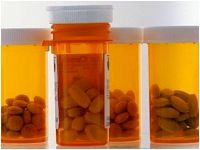'Smart Capsule' Shows Potential in Weight Loss
A new pill could be the next tool in a patient's fight to lose weight, according to a recent study.

A new pill could be the next tool in a patient’s fight to lose weight, according to a recent study.
The “smart pill,” known as Gelesis100, was tested on overweight and obese patients, the results of which were presented at the International Society of Endocrinology and the Endocrine Society (ICE/ENDO 2014) in Chicago.
Also known as Attiva, the pill is designed to help patients lose weight by causing satiety and reducing the intake of calories, rather than being on a normal diet. The FLOW study was funded by Gelesis, the medicine’s manufacturer, and included 128 nondiabetic patients, with the most weight loss coming from subjects who had impaired levels of prediabetes.
Results of the study were presented by Hassan Heshmati, MD, chief medical officer for Gelesis who also served as a co-investigator.
“Given the excellent safety profile observed in the FLOW study, Gelesis100 has the potential to fulfill the unmet need for a safe and effective weight loss agent," Heshmati said. "This is particularly impactful for individuals with mildly elevated blood sugar (prediabetic subjects), for whom weight loss is particularly important because they are at an increased risk for diabetes.”
As part of the study, 43 subjects were given 2 doses of 2.25 g of the medicine to be taken with water before a meal. A second group of 42 participants received a 3.75 g dose and a third group were given a placebo of cellulose. The subjects were also asked to cut their caloric intake by 600 calories per day during the 12-week study.
The average weight loss at the end of the study was 6.1% for the group that received the 2.25 g dose, 4.5% for the dose of 3.75 g and 4.1% for the placebo. The 2.25 g group lost 8.2% of their body weight, on average, while the prediabetic subjects lost an average of 10.9% of their body weight.
Heshmati attributed the lower weight loss amounts at higher doses to a low tolerability, which made it harder for patients to comply with the rules of the study. Side effects reported included bloating, flatulence, abdominal pain, and diarrhea, which were reported less in the lower-dose groups.